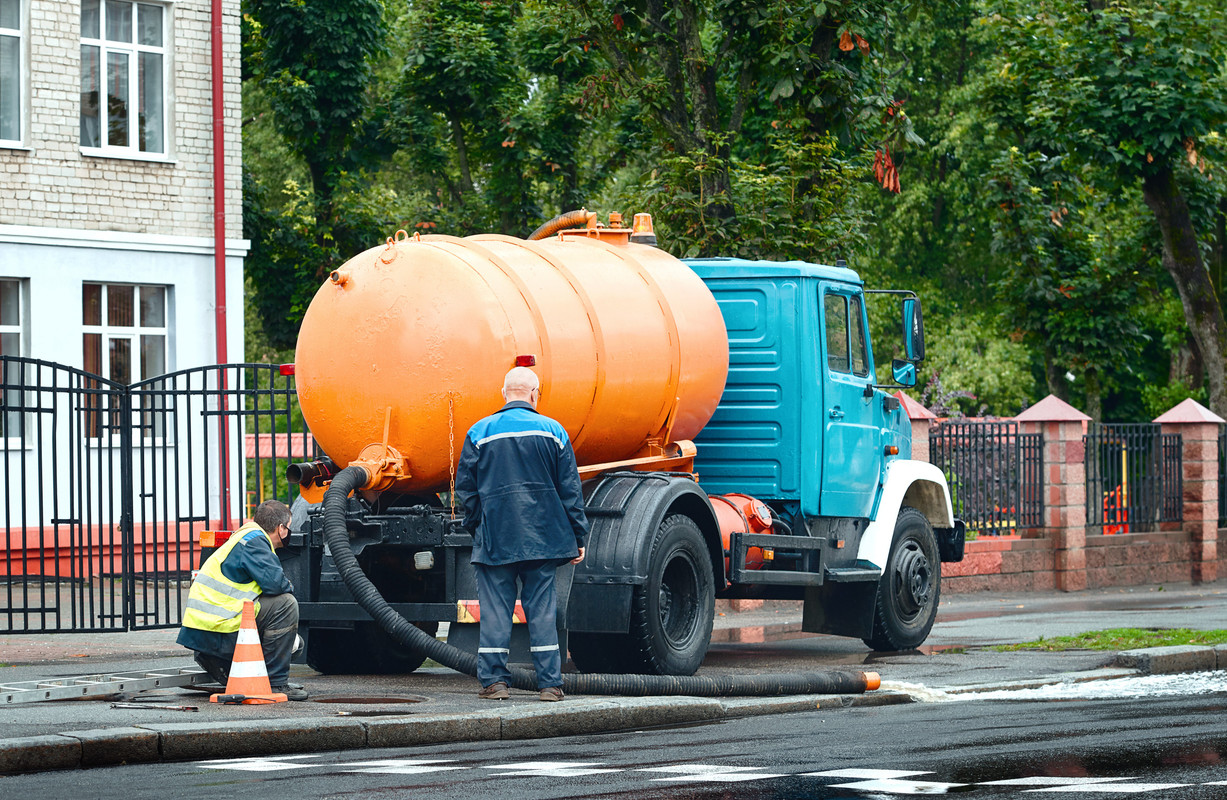Septic Tank in Perth
by siteadmin

Anything that goes down your toilet, drain, or sink will eventually end up in your septic tank. These tanks are specially designed to handle household sewage in areas without sewer systems.
Bacteria in the tank break down pollutants, and the liquid wastewater (effluent) exits through your drainage field into soil or groundwater. Heavier solid waste is left behind in the tank as sludge.
Getting a Septic System Installed
If you live in a rural area and don’t have access to public sewer services, you may need a septic system. This wastewater treatment system is ideal for homes away from the sewage system lines and is environmentally friendly. The septic tank recycles sewage to the soil, where microorganisms break down waste and sludge. It also helps replenish the water table. However, septic systems can have some disadvantages and can cost more to maintain than municipal sewer systems. If you are considering buying a house with a septic tank, it’s important to weigh the pros and cons carefully.
A septic system can be designed to suit the property’s soil composition, house size, and lifestyle. It can consist of a septic tank and leach drains, a sand filter, or an absorption trench. Choosing the right one depends on soil conditions, the salt content of local groundwater, and how many people will use the system.
When you’re ready to buy a home with a septic tank, make sure it’s inspected before closing. A professional septic service company will ensure everything is in working order and provide essential instructions on how to care for it. They will also check for proper ventilation, drainage, and leaks. A septic system that isn’t properly maintained can result in clogging, sludge buildup, and overflowing.
Septic tanks can be very odoriferous, but they can last up to 40 years if they’re well-maintained. The best way to avoid odors is to keep your toilet and shower drains clean. In addition, you can reduce the amount of waste that goes into your septic tank by using low-flow toilets and showerheads.
Besides cleaning your toilets and shower drains, you should also clean your septic tank lid and the outside of the tank. If you don’t, they can corrode and cause a leak or overflow. Moreover, you should have the septic tank pumped periodically to remove solids and sludge.
Having a septic system can save you money on taxes and utility bills, but it’s crucial to maintain it regularly. If you notice a gurgling sound coming from your bathroom or slow draining, call a septic service to inspect the tank and fix any problems.
Inspections
Septic systems treat sewage onsite, so they can be used in rural areas or camping sites without a municipal sewer system. They separate solid waste from the liquid, which is then pumped out to a drain field to undergo further treatment and natural filtering through soil. These systems can be very effective and economical, but they do require regular maintenance to function properly. If a septic tank is leaking, it can cause water damage to the surrounding property and health problems for people living in the home. It is important to have a septic tank inspection done when you are buying or selling a house.
A septic tank is usually located in the yard and is often well hidden by grass, trees, and shrubs. If the septic tank is old and the previous owner has no records, finding it can be difficult. An InterNACHI inspector can use a few tricks to help find the septic tank. For example, the greenest grass in a yard is generally directly above the septic tank, and snow melts faster above it than in other parts of the yard. In addition, the location of the septic tank may be shown in an "as-built" drawing, which is often held by local health and zoning agencies. If this is not available, a metal rod can be inserted into the soil to probe a suspected area.
The tank itself should be inspected for cracks and other signs of deterioration. Since the interior of a septic tank is very dirty, only trained and equipped professionals should enter it. A cracked tank that allows effluent to leak into the ground is a danger to people and wildlife, and it should be replaced.
In addition, the septic tank should be located far from wells and streams. It is also important to keep the septic tank and drainfield free from vehicles and heavy machinery, which can crush or puncture pipes.
A septic system that is working correctly should not emit any odors inside the home or in the yard. If a septic tank is emitting a foul odor, an inspection should be done immediately. A professional can advise you on the right size and type of septic system for your needs, and they can provide an accurate estimate for its installation.
Repairs
If you live in a home that is not connected to the town sewer, you may need a septic tank system. Septic tanks treat sewage waste from the toilets, showers, sinks and drains. It is important to have it properly installed and maintained. This will help to keep the water clean and protect your health.
A septic tank is a water-tight container buried underground. It collects wastewater from your household and stores it in the tank until it can be emptied. Solid waste settles at the bottom of the tank as sludge, while fats and oils rise to the surface as a scum layer. The wastewater passes through the septic tank and is digested by helpful bacteria, which turns it into partially purified effluent. This is then filtered through a leaching field, where it is absorbed into the ground.
Your septic system will need to be cleaned on a regular basis to prevent clogs, leaks and overflows. These problems can be expensive and dangerous to your family’s health. To avoid these problems, you should hire a professional to perform periodic inspections. During an inspection, the liquid waste technician will examine the condition of your septic tank and leaching field. He will also look for any signs of contamination in your home’s plumbing.
You should consider getting a new septic system if your old one is full or if it has been leaking for some time. You will need a permit to get a septic tank installed, and it’s best to work with a licensed plumber. In addition, you will want to make sure that the septic tank is properly installed so that it doesn’t discharge into a public waterway.
The septic system is more environmentally friendly than the conventional sewer system, and it saves you money on property taxes. However, the system can be more costly to maintain than a conventional sewer system, and it can pollute the soil if it fails.
If you’re considering buying a house with a septic system, you should ask the seller to provide you with the records of the septic tank inspections. These records will show you how frequently the septic tank has been pumped and inspected. This will help you avoid any major septic system issues in the future.
Maintenance
A septic system is designed to safely store and break down raw sewage underground where it cannot be accessed by the public. It is made from strong materials such as concrete, fibreglass or plastic to contain dangerous chemicals that would otherwise destroy the environment. It consists of three parts; a septic tank, a leach field and the septic system pipe network. The septic tank stores the waste while the bacteria in the septic system breaks it down and pipes partially purified effluent into your drainfield or advanced wastewater treatment system for further treatment.
The septic tank must be pumped out regularly to ensure that solid and sludge does not build up preventing the separation of liquid waste and sewage. Over time, this can result in disease-causing parasites and microorganisms contaminating the water supply and soil surrounding your septic tank and soakfield.
It is recommended to hire a licensed liquid waste contractor to perform this task for you as it can be an expensive and hazardous job. This will include measuring the sludge and scum levels in your septic tank. The septic tank is then emptied and the contents examined to see if any repairs or maintenance are required.
Your septic tank and the surrounding drainfield are susceptible to damage from surface water runoff, excessive vehicles or machinery traffic or inappropriate landscaping near your septic system. This can compact the soil around your septic tank and leach fields and block the drainage pipes. To minimise these risks, it is important to keep all surface water runoff away from the septic system and to not landscape, construct buildings or install pools over your septic tank, leach fields or drainfield replacement area.
Many septic tank problems are caused by improper or infrequent use of your septic system. For example, large quantities of oil-based paints, solvents and latex cleaners can clog the septic system. It is also recommended to limit the amount of laundry done as each load overloads the septic system and can cause it to overflow into your drainfield.
The location of your septic system and the surrounding soil can also affect how often you need to pump it out. For instance, cooler areas have slower bacterial action meaning that full decomposition of the sewage takes longer. This can increase the need for regular septic tank pumping in these areas.
https://www.septictankarmadale.com.au/
Anything that goes down your toilet, drain, or sink will eventually end up in your septic tank. These tanks are specially designed to handle household sewage in areas without sewer systems. Bacteria in the tank break down pollutants, and the liquid wastewater (effluent) exits through your drainage field into soil or groundwater. Heavier solid waste…
Recent Posts
- Christopher David Realty – Sacramento: Leading the Way for First-Time Home Buyers in Sacramento
- Southwest Patio Introduces Premium Outdoor Living Solutions in Arizona: Your Trusted Partner for Four Seasons Patio Covers, Pergolas, and Gazebos
- Got Flow Plumbing & AC Services: Houston’s Trusted Partner for Faucet Repair, Water Heater Repair, AC Installation, and Furnace Repair
- Rooftop Solar Company: Leading the Charge as One of the Top Solar Companies in Las Vegas
- Arthur Murray Dance Studio Honolulu, HI: Your Premier Destination for Dance Lessons in Honolulu
